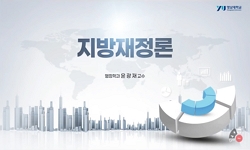This study analyzes the outcomes of thoughts and researches on what actions to take and plans to have, in terms of United Nations Framework Convention on Climate Change (UNFCCC). The study organizes the current series of climate change negotiations si...
http://chineseinput.net/에서 pinyin(병음)방식으로 중국어를 변환할 수 있습니다.
변환된 중국어를 복사하여 사용하시면 됩니다.
- 中文 을 입력하시려면 zhongwen을 입력하시고 space를누르시면됩니다.
- 北京 을 입력하시려면 beijing을 입력하시고 space를 누르시면 됩니다.
온실가스 감축의무 협상동향 및 대응방향 연구 IV = Climate Change Negotiations for the Post-Kyoto Regime-Key Issues and Implications IV
한글로보기https://www.riss.kr/link?id=A102027058
- 저자
- 발행기관
- 학술지명
- 권호사항
-
발행연도
2012
-
작성언어
-
-
주제어
유엔 기후변화협상 ; 도하 당사국총회 ; 감축 ; 재정 ; UNFCCC ; Doha Climate Change Negotiations ; mitigation ; finance
-
KDC
500
-
자료형태
학술저널
-
수록면
1-170(170쪽)
- 제공처
-
0
상세조회 -
0
다운로드
부가정보
다국어 초록 (Multilingual Abstract)
This study analyzes the outcomes of thoughts and researches on what actions to take and plans to have, in terms of United Nations Framework Convention on Climate Change (UNFCCC). The study organizes the current series of climate change negotiations since the 17th Conference of Parties (COP) in 2011, which had taken placed in Durban, South Africa. The results of major workshops, ``equitable approaches to sustainable development`` and ``long-term global objective and mitigation action`` are discussed and implications are drawn. In addition, this study analyzes the negotiation position of China in depth because China has increasingly enlarged its influence on the progress of climate change negotiations. The political positioning of China is discussed following the previous discussions of U.S. negotiating positions which was already discussed in the third edition of this report. The major negotiation issues of AWG-LCA, AWG-KP, and ADP since the COP 17 are discussed and summarized. Then, the study summarizes the outcomes of the COP 18 and suggests Korea`s strategies on future climate change negotiations. The parties of the Doha Conference agreed to continue on the Kyoto Protocol (KP) by 2020 in the midst of parties fearing the collapse of KP. The adoption of a second commitment period of the KP, the only legally binding obligation to reduce green house gas emissions, will prevent the gap between the first and second commitment periods. The AWG-LCA which was established in 2007 (COP 13) in order to discuss the post-2012 climate change paradigm is terminated and it is set to implement what has been discussed. The adoption of a second commitment period of the KP and the termination of the AWG-LCA are the major achievements of the Doha Conference. Still, there are another many issues requiring the agreements of parties in the future. Based on the outcomes of the Doha Conference, possible negotiating strategies are as follows. First, Korea needs to clarify what roles to take in the new climate change negotiation paradigm and take necessary actions. Parties agreed to make a draft of negotiating text in the ADP by May 2015 and host meetings at least twice a year from 2013 to 2015. Raising the ambition pre-2020 and establishing a new climate change regime for post-2020 will be the main negotiating challenges from 2013. Korea needs to implement stated pledges and thereby demonstrate her green leadership. Second, parties agreed to adopt a second commitment period of the KP from 2013 to 2020 which legally obliges the mitigation of the developed countries. Parties may provisionally apply the amendment and implement their commitments of the second commitment period during the domestic processes of national legislation. Third, Korea needs to actively suggest ideas and opinions through submissions while closely observing changes on parties` negotiating positions. Discussions relating a shared vision, finance and technology will take place under the ADP or subsidiary bodies. After five years of discussions on the AWG-LCA since 2007, parties have reached an agreement to terminate the AWG-LCA after all. This means that parties have agreed to discuss issues such as the establishment of work programmes for the mitigation of developing countries, providing MOI (finance, capacity building, technology transfer), and hosting adaptation forum and make agreements, henceforth. Parts of the discussions will be transferred to subsidiary bodies. Fourth, Korea needs to endeavor to attract more long-term finance funding to GCF as active discussions on mid and long-term financing support are expected in 2013. The Doha Conference urged parties to submit strategies and plans by the COP 19 how to mobilize the long-term finance. The Doha Conference also congratulated and ratified the host of GCF in Korea. The outcomes of this research provide the basis for Korea to set the negotiating position and help to develop policies promptly to respond to the upcoming global climate change regulation.
동일학술지(권/호) 다른 논문
-
- 한국환경연구원
- 강성원
- 2012
-
보호지역의 지속가능한 이용 및 관리 -지역의 생태,경제,사회적 특이성을 기반으로 한 접근
- 한국환경연구원
- 박용하
- 2012
-
- 한국환경연구원
- 김광임
- 2012
-
- 한국환경연구원
- 이상범
- 2012




 KISS
KISS




